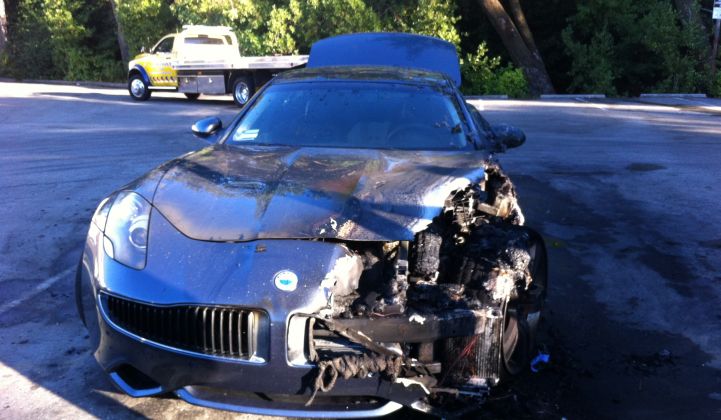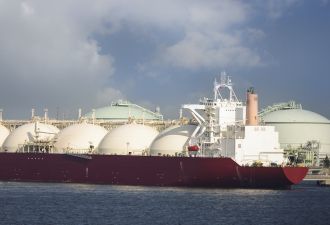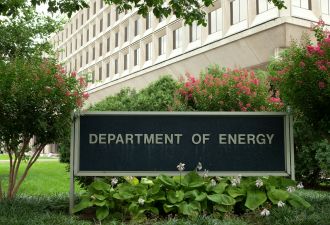Fisker Automotive, the would-be luxury hybrid sports car maker, finally filed for bankruptcy protection on Friday. Now we’ll see if the Hong Kong-backed group that plans to buy out Fisker’s assets can push the proposed deal through this week.
According to news reports, Hybrid Technology, a group headed by Hong Kong billionaire Richard Li, has pledged $8 million in financing to fund Fisker’s bankruptcy proceedings. Li’s group is also the winner of an auction to buy Fisker’s remaining DOE loan obligations for $25 million, part of its proposal to take over the company in a process that would short-circuit the usual bankruptcy court process.
This deal would likely leave next to nothing for private investors that sank $1.2 billion into the Anaheim, Calif.-based Fisker since its 2007 founding. Those investors include VC firms Kleiner Perkins Caufield & Byers and NEA, now-defunct investment firm Advanced Equities, and Li himself.
It also pays off only a fraction of the $192 million Fisker has drawn from the $528 million conditional loan granted under DOE’s Advanced Technology Vehicles Manufacturing Program (ATVM). DOE cut off access to that loan in 2011 after Fisker missed performance targets, and auctioned off the loan obligation in October, leaving taxpayers on the hook for the remaining $139 million. The loan reserve created for the ATVM program should cover a portion of those losses.
Fisker hasn’t built a car since July 2012. Pummeled by bad reviews and reports of vehicle fires and recalls based on problems with its battery packs from A123 Systems (another bankrupt, DOE-backed firm), Fisker struggled early on to gain traction. Last year’s Hurricane Sandy destroyed a warehouse containing $30 million worth of Fisker’s already-built Karma sports cars, and founder Henrik Fisker, a former car designer for Aston-Martin and BMW, left the company in March.
The past year has brought reports of multiple bidders for Fisker, including former General Motors chairman Bob Lutz and China’s Wanxiang Group, which bought A123. Li was reported to be the winner of the Oct. 11 auction for the company’s remaining DOE loan obligations, and Hybrid Technologies, which was formed late last month, was named the bidder for the company’s assets in its Friday bankruptcy filing.
When it announced its auction of Fisker’s loan obligations, DOE stated that it would “require all bids to include a commitment and business plan that promotes domestic manufacturing capabilities and related engineering for advanced technology vehicles here in the United States.”
But it’s unclear whether that standard will require bidders to continue renovating the Delaware plant where Fisker had intended to produce its lower-cost Atlantic hybrid sedan. The Wall Street Journal reported Monday that the plant could be sold by Hybrid Technology, according to bankruptcy documents filed by Fisker.
Fisker certainly isn’t the only company that has failed to take on the legacy automotive industry via venture capital investment and government loans. Failed “green” vehicle companies include Coda Automotive, Think Global and Next Autoworks (formerly V-Vehicle), as well as plug-in EV charging companies Better Place and ECOtality, which both declared bankruptcy this year.
So far, Tesla Motors is the only venture-backed car maker to succeed in breaking into real-world markets and posing a competitive threat to plug-in vehicles like the Chevy Volt and Nissan Leaf.
Tesla has also paid off its DOE loan -- a positive development amidst a tough period for electric vehicle startups getting government assistance.



